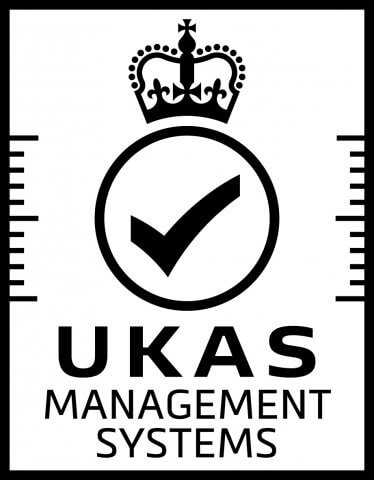Ageing, scarred, and damaged skin can hurt our self-esteem and make us feel bad about how we look.
With microdermabrasion, you can give your skin that youthful glow again, and reduce scarring and signs of ageing.
There’s a lot of misconceptions about microdermabrasion, and many people think it’s a serious procedure when that couldn’t be further from the truth. Microdermabrasion is a non-invasive procedure that many patients get to help them feel more comfortable in their skin.
Today we’re going to go through everything you need to know about microdermabrasion, as well as all the benefits and the side effects of the treatment.
What is microdermabrasion?
Microdermabrasion might sound terrifying, but it’s not as scary as you might think. It’s a type of skin treatment that involves gentle abrasion to remove a fine layer of skin. It’s used to get rid of any dead skin cells and the top layer of skin is removed so the healthier skin underneath can flourish.
What’s excellent about microdermabrasion is that it removes the layer of dead skin and debris and stimulates the skin’s natural ability to grow new cells and hydrate. This helps produce positive results for patients and helps improve the appearance of their skin. So not only will their skin be smooth and soft, but it’ll also be replenished and healthier.
How does microdermabrasion work?
Microdermabrasion works by scrubbing dead skin cells and debris from your skin with very fine crystals. This gently buffs the skin’s top layer, which is usually damaged.
This allows the underlying skin to grow. It encourages collagen to be produced, helping restore firmness to the skin and making it feel smoother.
What skin conditions can microdermabrasion help?
People undergo microdermabrasion for a variety of skin conditions, including:
- Wrinkles
- Fine facial lines
- Sun damage
- Stretch marks
- Blackheads
- Enlarged pores
- Skin discolouration
- Superficial scarring
- Acne scarring
- Age spots
- Sun damage
What are the benefits of microdermabrasion?
Microdermabrasion is suitable for all skin types and is more effective at removing dead skin cells than chemical peels are. It’s encouraged that you try out microdermabrasion if you want to improve elasticity, texture and reduce signs of ageing.
The effects of microdermabrasion are instant, and you don’t need any recovery time for this procedure. Your skin will also absorb anti-ageing and acne creams a lot better after getting microdermabrasion treatment done.
Some other benefits of microdermabrasion include:
- Giving you fresher-looking skin
- Reducing wrinkles and fine lines
- Improving skin tone and colour
- Shrinking pores
- Reducing age spots
- Helping to get rid of scarring
- Giving you a cleaner, more radiant complexion
Microdermabrasion is also:
- Convenient
- Non-surgical
- Minimally invasive
- Virtually painless
- Safe and effective for all skin types
What are the side effects of microdermabrasion?
Microdermabrasion is incredibly safe, and there are virtually no side effects to getting this procedure done. Any side effects that do occur are incredibly short-lived. This is especially true if your treatment is provided by a skilled doctor who’s assessed your skin type carefully and knows how to perform the procedure to best suit your needs.
The most common side effect of microdermabrasion is simply a little redness and tenderness after the treatment. Most people will notice that this redness goes away in about an hour or two.
On occasion, there might be some slight bruising from the suction process, but this is very uncommon.
If you’ve got sensitive skin or bad acne, then your doctor will take care to avoid irritation. Despite microdermabrasion being suitable for all skin types, it’s not recommended that you get the procedure done if you have skin conditions like:
- Eczema
- Rosacea
- Psoriasis
- Herpes
You also shouldn’t get microdermabrasion if you’ve got any open sores or are sunburnt.
What’s microdermabrasion aftercare like?
The easiest way to avoid any side effects with microdermabrasion is to keep your skin hydrated with light moisturisers.
You should also regularly use suncream, even when it’s not sunny, and avoid topical acne creams 24 hours after the procedure.
Is microdermabrasion right for you?
Microdermabrasion can produce better anti-ageing results than any anti-wrinkle cream or serum. This is because topical skin products can’t reach the lower layers of the skin.
No matter what your skin’s condition is like, you’ll be able to notice an improvement in your skin’s appearance after treatment. Patients say their skin feels softer, smoother and youthful even after their first session.
After a single microdermabrasion session, you’ll be able to see immediate results to your skin. You’ll continue to see more improvement with your skin as you undergo the remainder of your treatments.
How many microdermabrasion treatments do you need?
Most patients get 5 to 16 microdermabrasion treatments. They’re scheduled about two weeks apart to help the skin grow and renew itself before the next session.
If you’re looking for a way to give your skin a youthful glow or want to rejuvenate your pores and make your skin softer and smoother, then microdermabrasion is the procedure for you.
Our experienced team can help provide you with all the information you need about microdermabrasion and walk you through the process.
Please get in contact with one of our team members today to book a call and learn more about this non-invasive skin treatment.





